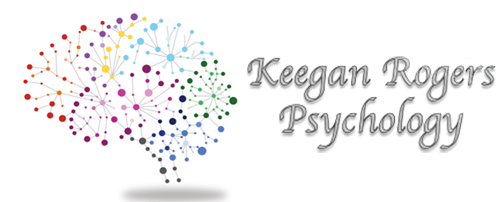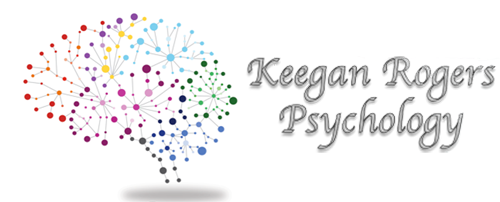GET IN TOUCH
Phone Number:
Address:
246 Vorster Avenue,,
Glenvista,
Johannesburg South
Email:
BLOGS

By Keegan Rogers
•
02 Apr, 2024
A day dedicated to shedding light on the diverse experiences of individuals with autism, transcending clinical definitions to embrace the vibrant tapestry of humanity.
Let's take a moment to reflect on what autism truly means. Within this spectrum lies the essence of uniqueness – every individual with autism defies stereotypes and preconceptions.
Eager to learn more? Dive into the full text below, where we unravel the complexities of autism, explore practical strategies for support, and explore inclusivity on both an individual and organisational level.

By Keegan Rogers
•
19 May, 2023
Written with: The Space Between Us ( https://www.thespacebetweenus.africa/ ) Autism spectrum disorders (ASD) are a diverse group of conditions which impact the brain and nervous system. Characterised by challenges with social skills, repetitive behaviours, speech, and nonverbal communication, autism is a notably spectrum disorder. This means that each person with an ASD diagnosis will have their own unique set of strengths and challenges. This can range from the highly skilled to the severely challenged. There are no blood tests for Autism, and it remains quite a specialised and niche diagnostic space to be in, so making a diagnosis can be very challenging – especially when the obvious external signs of autism are not present. In some cases, the symptoms of high-functioning autism (HFA), can be overlooked until late childhood, adolescence, or even adulthood. Neurodiverse individuals can also develop something called masking, an unconscious act of hiding or coping with certain symptoms. However, you may notice inflexible thought patterns and behaviours, or repetitive actions. There can also be similarities between ASD and disorders such as attention deficit hyperactivity disorder (ADHD). In these cases, online tests can be a good starting point – but please take care to only use clinically-developed assessments provided by accredited and established healthcare facilities. And as a newly diagnosed young professional, you may feel relief to find an explanation for why you’ve often felt different from others. But it is still incredibly important to take a holistic and multidisciplinary approach to managing your autistic symptoms. There are many treatment options available to you, including speech-language therapy, occupational therapy, social skills training, sensory integration therapy, and cognitive behavioural therapy (CBT). While no study has yet been done to determine the total number of cases in South Africa, it is currently estimated that Autism affects approximately 2% of the South African population. W hy I see ASD as an unlabelled superpower Autism is an incredibly diverse spectrum, and no two people are the same. Their struggles will be different, their strengths will be different, and the way they balance those will also be different. But the reason why I so often say that autism is an unlabelled superpower is because every autistic individual I meet looks at the world through such a unique lens. They see things that we don't, they create patterns we can’t, they inspire me so often to take a step back and shift my own perspective. It’s so wonderful to see their perception of the world, and when they’re given the opportunity to thrive, we see just how much people with autism spectrum disorder (ASD) have to offer. Every day I see living proof of neurodiverse individuals chasing their dreams and achieving their goals just as much as anyone else. Working in a neurotypical world While many companies are working to create a more inclusive culture, the truth is that not many industries have the flexibility to allow autistic individuals much control over their own environment. Very often loud, bright, and overwhelming, the working environment may have such an adverse impact on you that you might not enjoy going to work at all; you may even find yourself getting to the point of complete withdrawal, sensory overload, and meltdowns. As an undiagnosed adult, you may find it hard to understand what others are thinking or feeling, or make sense of social rules. You may feel anxious about social situations or find it difficult to express yourself. You may even find that others often think you’re being blunt, or rude. That said, the perception that autistic people, whether diagnosed or not, can’t fit into a certain workplace culture is a myth. I encourage you to remind yourself that you bring your own set of skills, talents, and perspectives to the table. The way you progress might look different to others, and there will be challenges to face, but they’re not impossible to navigate. In my experience, these are some of the most important strategies to help you transition into the workplace. Strategy #1: Lean into your support network Whether your support structure is your family, your partners, or your friends and peers, it is important to keep that solid foundation as you transition into the workplace. I’ve found that the sense of comfort your support structure can provide is integral to the process of stepping into a new phase of life. It is also a very effective strategy to work with an occupational therapist during this time, someone who can help you navigate the change, fine-tune sensory integration practices, self-regulation processes, and build any new executive functioning skills that your industry may require. Strategy #2: Create a low stimulus arousal environment You might not want too much light, or too many colours, patterns, textures, sounds, and smells, and so it’s a good idea to take a minimalist approach to your work space. If you’re hyposensitive (under responsive) rather than hypersensitive (over responsive), you can always introduce additional stimuli if, or when, you need them. This is much easier to do when you have the option of working from home – if you happen to prefer solitude to social interaction. Strategy #3: Practice emotional regulation This is one of the most important tools to keep using throughout your life. When you don’t know what you’re feeling, you don’t know how to regulate that emotion, so the starting point for alexithymia (the inability to identify and express emotion) is developing an understanding of what you’re feeling. Literally keep identifying and labelling the emotion as much as you need to. I find the emotional wheel chart particularly helpful with my clients. You can even print out a whole lot of emoticons if that works better for you. So name the emotion, identify where you feel it in your body, and use your particular set of tools and techniques to maintain the positive, or to restore a balance, or to self-soothe when you‘re feeling angry, anxious, or overwhelmed. Strategy #4: Keep cultivating self-awareness It’s incredibly important to be self-aware when you’re on the autistic spectrum. When you know how you feel, you know what you need. When you’re feeling drained you can take time out to recharge, when the noise is overwhelming you can find quiet, when something doesn’t make sense you can take a step back and ask for more clarity. This is where psychoeducation helps to understand how autism presents to you personally, because every presentation of ASD is different for every person. Self-awareness is also important in helping you identify your triggers, in coping with your disadvantages, and in developing your strengths. Strategy #5: Develop your strengths Take the time to explore your passions and interests. What are you good at? What are you great at? What works for you? Which of your skills match your interests? Can you match that pattern to a career? One of my clients, a woman who was diagnosed with ASD in her mid-thirties, matched her passion for sports with her love for collating information about the human body and now runs one of the most successful schools in her field. She has changed her life in such an incredible way, and in turn, is changing many others. A final word on autism Receiving an autism spectrum disorder diagnosis is often met with fear, confusion, and anger and may feel like a sentence of life without fulfilment, but there is much we can do, no matter what your age of diagnosis. Autism is a neurological disorder that comes with many challenges, especially in communication and social skills. And while these challenges vary for every individual, most often people come to me for therapy and psychoeducation when the symptoms become too much. When it impacts daily life and their ability to function in school, work, and other areas of life. We always start by walking you through the acceptance phase, we identify your disadvantages, unpack your advantages, and look at ways that work for you as an individual. Over the years we have developed many behavioural, developmental, cognitive and psychological strategies and therapies to help you deal with everything from communication difficulties to social interactions and sensory processing. Through a multidisciplinary and holistic approach, there are countless ways we can improve the quality of your life, both at home and at work – especially when you’re given the space to bring in your own creative solutions. I can only try and imagine how scary it must be for you to not always understand what you’re feeling, or what the world around you is doing, but I want you to know that I see superpowers in action every day, and it’s honestly a privilege for me just to share the journey and walk alongside my clients with autistic spectrum disorder. And I think we could all do with seeing the world in a different light. Support for autism in South Africa I would love for more South Africans to know about where to start with an ASD diagnosis. The earlier we can start intervention, the better. And while the average age of diagnosis in countries like the United States and the United Kingdom is around 3 years old, in my practice the average age of new referrals is 10. Many mental health professionals are working on increasing the access to the resources that can make an earlier diagnosis possible, and one of those resources is the DISCO assessment with The Neurodiversity Centre . DISCO is a good place to start for an autism diagnosis in South Africa. It’s an in-depth diagnostic interview for conditions on the autistic spectrum. There is no one specific diagnostic test for autism spectrum disorder, but DISCO is an important instrument in the complex process of making a clinical diagnosis. Other factors include additional assessments as well as collateral from other clinicians, families, and schools or creches. The Neurodiversity Centre has branches nationwide, but the DISCO can also be conducted online. For more on autism listen to TSBU clinical psychologist Linda Mthenjane in her podcast chat with a woman who raised a young autistic man who went from speaking nonwords as a child to a matriculant entering his first year of computer science studies.
Phone Numbers:
066 258 07 97
Address:
246 Vorster Avenue
Glenvista ext 5,
Johannesburg
2091
© 2024
All Rights Reserved | Keegan Rogers Psychology | Privacy Policy

